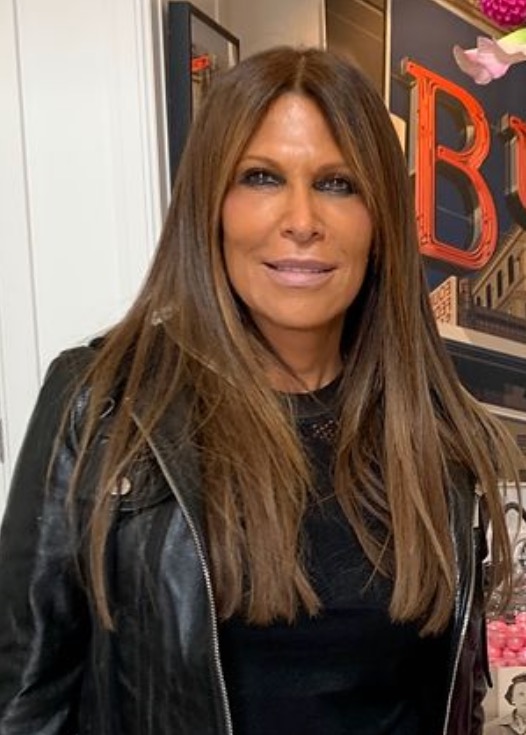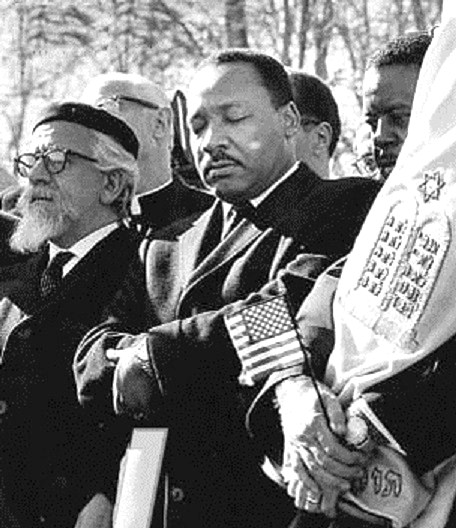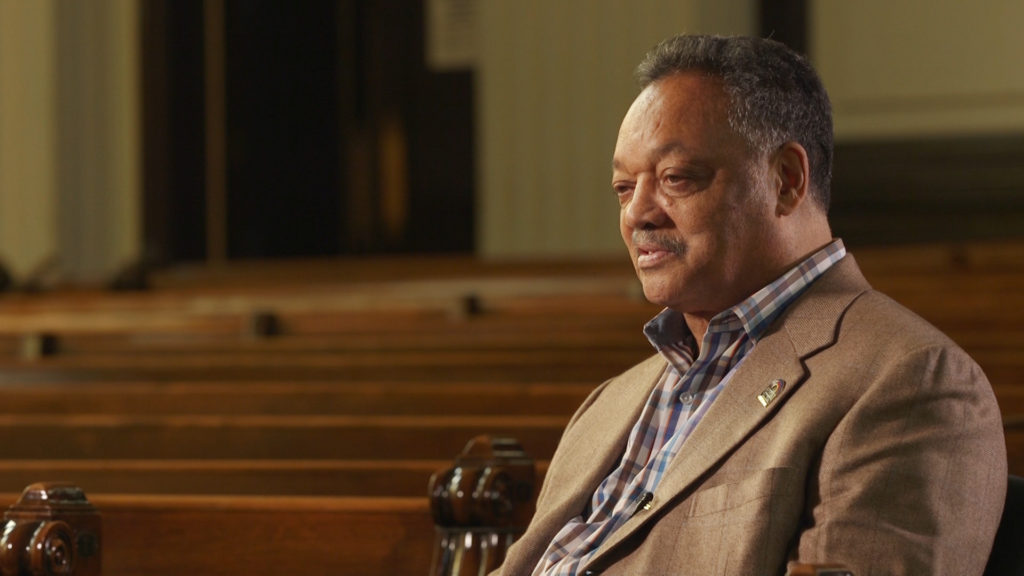
Shari Rogers, a clinical psychologist with a Ph.D. in psychology, became a social activist after her sister inspired her to study the Torah.
“Before then, I never knew that the Torah was not just a history. It was meant to make you a more ethical and compassionate person. This imperative was the underpinning of my social activism,” Rogers said. “In the Torah’s eyes, every individual is a work in progress. As a Freudian-trained psychologist, I have learned the power of the Torah to empower our self-empowerment on behalf of others.”
Rogers is also the president of the nonprofit Spill The Honey Foundation, that produced the documentary “Shared Legacies: The African-American Jewish Civil Rights Alliance,” screening through Sunday, Nov. 15, as part of the virtual St. Louis Jewish Film Festival. Rogers wrote, directed and produced the film.
Her overall work encompasses educational programs, curriculum development, public speaking and event development. She has spearheaded many initiatives in order to raise public consciousness on the issues of genocide, racism and oppression. She is also the founding director of Building Relationships Inc., and serves as a trustee of The Institute for the Study of Global Anti-Semitism and Policy. She was the co-executive producer of the documentary “Eli Inspiring Future Generations.”
 “Shared Legacies” focuses on the alliance between African-Americans and Jewish Americans during the civil rights movement, highlighting similarities between how African-Americans are affected by slavery and Jewish Americans by the Holocaust. The film demonstrates how discrimination and suffering unites people and that there is strength and healing in supporting one another.
“Shared Legacies” focuses on the alliance between African-Americans and Jewish Americans during the civil rights movement, highlighting similarities between how African-Americans are affected by slavery and Jewish Americans by the Holocaust. The film demonstrates how discrimination and suffering unites people and that there is strength and healing in supporting one another.
Ultimately, Rogers said, the hope is that “Shared Legacies” promotes partnership building for continued change, beginning with these two communities once again joining forces. She cites new issues that include gun violence and hate crimes, and believes Blacks and Jews also need to work together in facing challenges like entrenched racism and police and prison reform.

Rogers recently discussed “Shared Legacies,” with Gazelle, and her motives for producing it with executive producer and fellow social activist Lisa Weitzman.
What led to the making of the film?
Rogers: The making of this film happened after I co-produced a film about a Holocaust survivor who inspired people all over the world to become messengers of hope. As a Jewish woman, I had always revered Dr. King. Back then, I was at a lecture at the Charles Wright Museum in Detroit, given by Dr. King’s personal lawyer, Dr. Clarence B. Jones. He was speaking about his book: “What would Martin Say.” He took special note of the Jewish people and their commitment to the Rev. King and the civil rights cause. Meeting Dr. Jones reinforced my knowledge as a clinical psychologist of the power of making connections with your own history and its influence on the present. I recognized the potential value for Jews and Blacks to get to know their own shared American histories better by my producing a film about Black and Jewish coalition building. Dr. Jones introduced me to our executive producer Lisa Weitzman.
The world has recognized the seismic shift that Holocaust testimony has had on galvanizing activists against hate speech motivated by compassion for human beings. I learned that many living witnesses and present-day activists would be hearing from President Obama, our first Black president, speaking during the 50th anniversary of the Selma to Montgomery march (in 2015) on the famous bridge that bears the name of a Klu Klux Klansman named Edmund Pettus. I realized I had the chance to witness history, and that filming this history with all the people who made it would be an amazing opportunity.

What is your primary goal?
Rogers: My goal today is to reignite the power of Black and Jewish memory by lighting a fire under both communities to again work together, inspired by the recognition of their shared history battling injustice. Equally important, we can use their shared history as a template for bridge building today. A renewed alliance is especially relevant at this moment of racial reckoning and rising anti-Semitism. Even at the low point in the late 1960s, when Black Power was in the ascendant, new lessons were being learned. Marc Dollinger’s recent book, “Black Power, Jewish Politics,” shows Jews at that time learned from the Black empowerment movement how to recast their own new movements like Free the Soviet Jews.
How would you describe the uniting factor between Jewish people and African-Americans?
Rogers: We should avoid romanticizing past cooperation, and we should also remember that Blacks and Jews have always had frictions – whether over the role of Jewish ghetto merchants or the lessons of Palestinian/Israel conflicts in the Middle East. Yet cynics who claim that because of the friction points, Black and Jews never had anything positive in common, are wrong. Their ancestors each had histories of persecution and oppression despite living thousands of miles apart in Czarist Russia and the Jim Crow South. They also were both inspired by the biblical narrative of Moses leading the Hebrew slaves out of bondage. These shared legacies drew them together, as did the leadership of the great Black and Jewish activists who formed the NAACP in 1909.

What has been the overall reaction to the film?
Rogers: The film opened at the 20th anniversary of the Atlanta Jewish Film Festival. There were 2,400 people in attendance, and we received the jury prize for bridge building. Since the COVID crisis, the film has served as a platform for diverse communities to come together for courageous conversations on Zoom about present-day issues. We have partnered with the American Jewish Committee who helped us raise the remaining funds with the help of Sherry Frank. Blake Weissman, our National youth president who attends Ross Business School in Detroit, has built a network of student ‘Spill The Honey’ ambassadors. We have had youth-led webinars with Morehouse College, University of Michigan at the Ross Businesses School, dialogues with students with Hillel International across the country, and will be featured by the history department at the University of North Carolina Wilmington. This is only the beginning.

What’s next for you (as far as filmmaking)?
Rogers: The Spill the Honey Foundation is preparing and promoting a video curriculum to help teachers reinforce the messages of ‘Shared Legacies.’ To return to our beginnings: the impetus for the Spill the Honey Foundation was the story of Eliezer Ayalon, a Holocaust survivor who was given a cup of honey by his mother and blessed to have a sweet life. It would be so easy to say that he had anything but a sweet life, having suffered terribly and tragically from the war, with little time and energy to focus on anything but his survival. Yet he never forgot his mother’s blessing him with the miracle of a sweet life. It wasn’t until Eliezer courageously began speaking about his experiences that his healing truly began. For so long, he had held his experiences in, not wanting even to think about them, let alone share them. But eventually he was convinced that it would be through public speaking, through sharing his story, that he would heal while helping others understand and heal. His mother’s blessing most definitely has been fulfilled for him. That cup of honey was the sweetness that always lived within him to connect him to others.
Also, if you look at the Rev. Martin Luther King, Jr.: While Black people suffered horrific prejudices and racism, he changed society through courageous acts and the power of his eloquence. Words matter, and he transformed reality through his electrifying speeches. He chose words to spread sweetness that stuck to the hearts and souls of all who heard him and who continue to hear his message to this day. And just like Eliezer had to make a choice whether to focus on his own suffering or to find blessings, so, too, this was the message to us from Rev. King, who said, “Let us not seek to satisfy our thirst for freedom by drinking from the cup of bitterness and hatred.”
Spill the Honey has the goal to eradicate prejudice, racism, anti-Semitism and every other baseless hatred. To let honey overflow so that it heals everywhere, to be shared freely without restriction. Spill the Honey’s board is made up of wide-ranging membership of African-American and Jewish civil rights leaders with professional achievements as ministers and rabbis, businessmen, lawyers and public servants.
We made ‘Shared Legacies’ not only to capture the recollections, before they pass from the American scene, of distinguished men and women who found ways to work together and make our country a truly great beacon of freedom and justice around the world, but to propel their work forward.
What does the film cover?
Rogers: Much of the film covers the historic alliance, featuring testimonials from the older activists or their children who are activists themselves. Later in the film, we touch on the fraying of the relationship and bring into the conversation current activists and intellectuals. Finally, we have interviews with people in their 20s and 30s, Black and Jewish, working together, as part of several grassroots organizations, on key initiatives like voter registration and prison reform. In total, we have conducted more than 50 interviews and have more than 100 hours of footage. Much of this has not made it into the film, but will be put to use for educational purposes.
The 25th annual St. Louis Jewish Film Festival runs through Sunday, Nov. 15, presenting a virtual selection of 12 documentary and narrative feature films from around the world. While all the films depict a slice of the Jewish experience, they are universal and meant to be appealing to all, regardless of faith.
For a complete list of films and discussions, visit stljewishfilmfestival.org. Ticket prices are $14 for each individual film. A “Shared Legacies” film discussion will be presented at 7 p.m., Sunday, Nov. 15, led by Rogers, available at no extra charge.
This year’s Jewish Film Festival is a program of the Jewish Community Center. Co-chairs for the festival are Marilyn K. Brown, Jeffrey Korn and Paula Sigel.
Photos courtesy of Shari Rogers, Ph.D.
